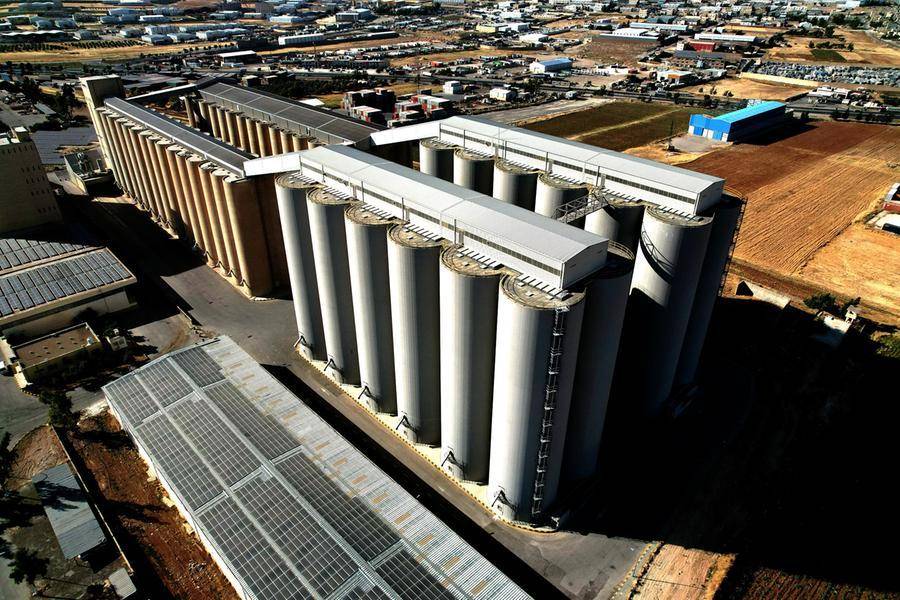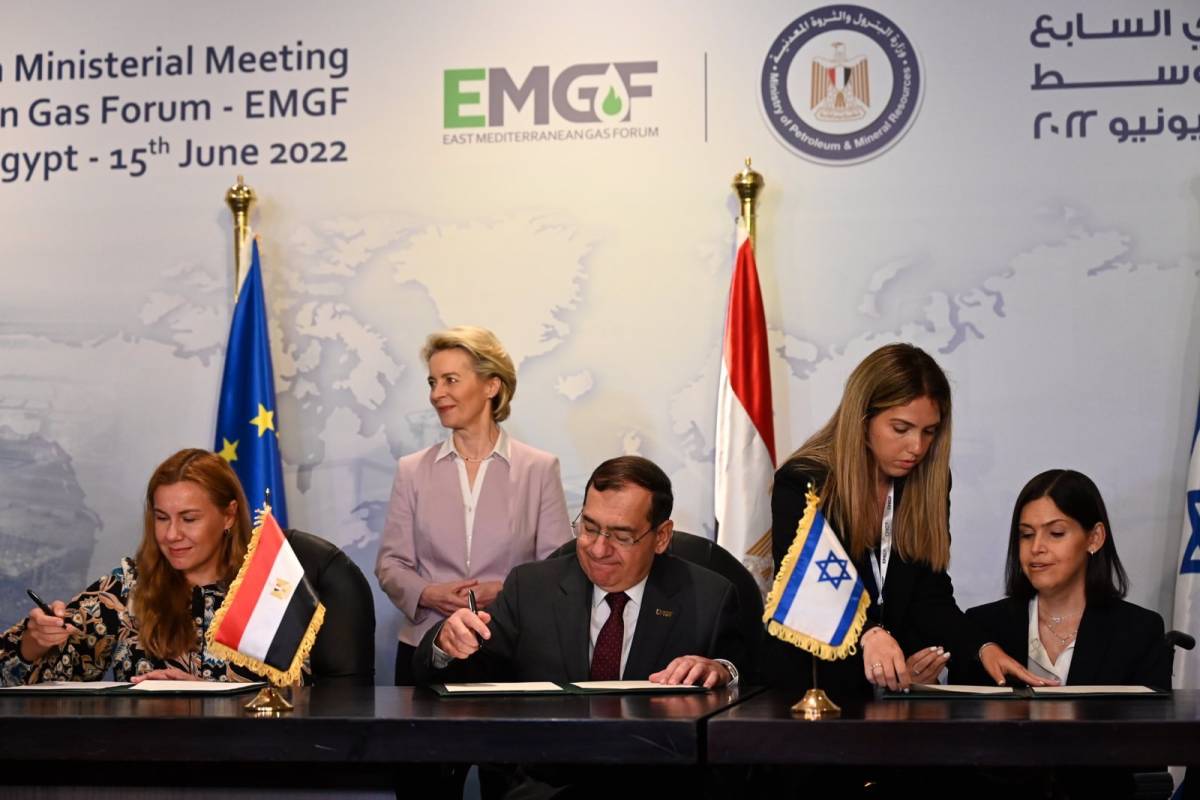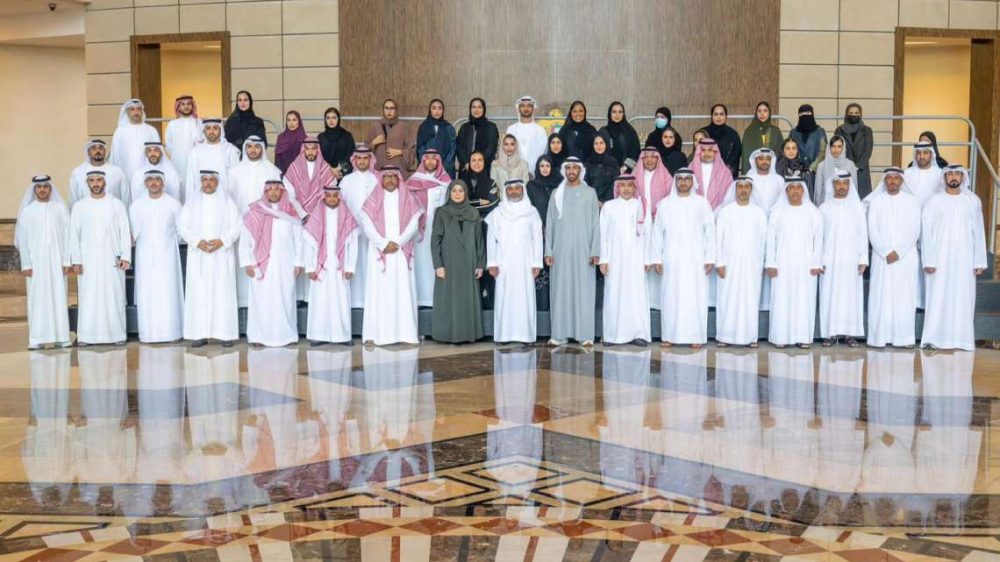Two grain silos inaugurated in Jordan following an extensive renovation carried out by Abu Dhabi Fund for Development
Two grain silos have been inaugurated in Jordan’s Juwaideh and Aqaba regions following an extensive renovation. The project was carried out by Abu Dhabi Fund for Development (ADFD) to raise the capacity of the Juwaideh silo to 120,000 tons, and the Aqaba granary to 100,000 tons. The aim was to support the Jordan’s National Food and Security Strategy for 2025.
Abu Dhabi Fund financed the AED258.7 million (US$70.5m) projects from an AED 4.6 billion (US$1.25m) grant allocated by the UAE to Jordan as part of the Arab Gulf Programme for Development (AGFUND).
The revamped granaries were inaugurated by Nasser Al Shuraida, Minister of Planning and International Cooperation and Acting Minister of Industry and Trade. The ceremony was attended by Mohamed Saif Al Suwaidi, Director General of ADFD; Dana Al Zoubi, Secretary General of the Ministry of Industry, Trade and Supply, and many other officials from both sides.
The silos are mainly used to hold essential food grains such as wheat and barley. The Juwaideh silo store grains in 24 vertical storages. Each main silo has a 5,000-metric-ton capacity. A 1-megawatt solar plant has also been up to supply energy to the granary.
The Aqaba granary got 28 additional vertical warehouses, each with a capacity of about 3,800 tons. Together the two silos are expected to reduce food imports, while also generating hundreds of jobs and contributing to Jordan’s economic development.
Nasser Al Shuraida said that the silos expansion project in Juwaideh and Aqaba underscored the scale of efforts of the UAE and Abu Dhabi Fund for Development to support Jordan over its development programs. He thanked the UAE and its leadership for enabling Jordan to achieve sustainable development.
He emphasized that the UAE through ADFD financed many projects in vital sectors that had a significant impact on the Jordanian economy, which uplifted the standard of living. He called ADFD a strategic partner and a global model in terms of driving sustainable development around the world.
Mohamed Saif Al Suwaidi said: “Our participation in the inauguration of expansion project of Juwaideh and Aqaba granaries reflects the depth of the strategic relations between the UAE and Jordan, as these pioneering projects represent a priority for Jordan’s development programs.” He pointed out that the two silos with an expanded capacity will enhance boost security and ensure that the country meets its food needs for an increasing population, in addition to keeping food price in check. “All this will further strengthen Jordan’s economy and support the government’s developmental objectives,” he said.
Engineer Imad Ali Al-Tarawneh, General Manager of Jordan Soils and Supply General Co., said: “The mega projects reflect the vision of the wise leaderships of the two countries and their keenness to strengthen strategic relations to achieve common economic objectives. Abu Dhabi Fund for Development’s contributions to upgrade the silos will help Jordan to maintain strategic stockpile of food staples, with the quantity being one of the highest in the Arab world. These projects also help meet local market requirements for essential food grains and enhance Jordan’s food security and sustainability.”
ALSO READ: UAE Central Bank hikes base rate after US move
Since 1974, ADFD financed development projects worth AED 6.5 billion, mainly in strategic sectors such as energy, transport, water and agriculture, health and education. These projects supported the Jordanian government to drive socioeconomic development in the country.
ADFD is a leading national entity for economic development aid owned by the Abu Dhabi government. Established in 1971, it aims to help emerging countries by providing concessionary loans to finance sustainable development projects as well as administer long-term investments and direct contributions. In addition to managing development grants offered by the Abu Dhabi government, ADFD has adopted a policy of supporting the national economy and financing UAE private-sector investments. Since its inception, ADFD has marked developmental milestones in 103 developing countries. Spanning the last 50 years, ADFD’s development projects and investments, valued at AED150 billion, have helped the international community achieve sustainable economic growth, as well as drive the implementation of the United Nations’ Sustainable Development Goals (SDGs).














